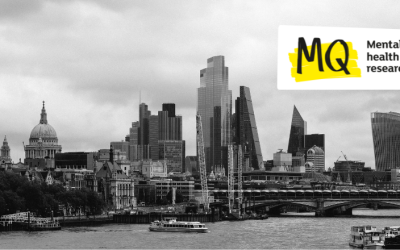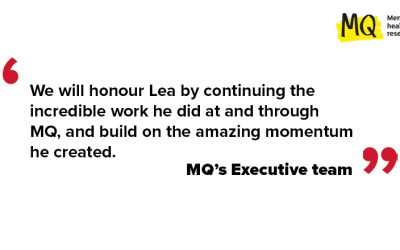This article was submitted by Shaun Flores, a lived-experience advocate, model and podcaster.
Mental illnesses are common in society, and the more we speak about them, the more we normalise dialogues encouraging people to get the help they need. We need to incentivise people to stop hiding.
At twenty-seven years old, I was diagnosed with OCD (Obsessive-compulsive Disorder).
For years, I had intrusive thoughts about my sexual orientation. I couldn’t stop questioning my sexuality. I was having thoughts I did not want to act upon, yet they were prevalent daily. I went down a rabbit hole looking for answers.
The thoughts then shifted to Harm OCD, which refers to a subset of OCD involving aggressive, intrusive thoughts about doing violence to someone - it is incredibly distressing. I felt I was a danger to people and wanted to be away from everyone. I decided, after a breakdown, to find a therapist. I found a psychodynamic therapist, which caused me to have further questions. People with OCD need CBT and ERP (Cognitive Behavioural Therapy and Exposure Response Prevention), and trained therapists should know this.
The moment my diagnosis was given, my life changed. In the week leading up to it, suicidal thoughts drowned my mind; whilst outside with a friend, an image of myself jumping off a bridge popped into my mind. I panicked, believing I was truly suicidal and was trying to kill myself. As a result, I rushed home and locked myself away. I told my friends I no longer wanted to be ‘around’. A couple of days later, on that Saturday, I woke up, and couldn't take it anymore; I felt as if my mind was racing with constant negative thoughts. Luckily, I found a therapist because of the Instagram algorithm.
Thanks to my therapist Emma Garrick, I promised to tell my story to help spread awareness. I was unaware of the dire straits OCD sufferers were in. I have found that not many black people speak out about OCD. As a young black man with an invisible disability, I was shocked at the reception, and since sharing my articles, a diverse range of people have reached out to me.
OCD is more common than we think. According to the university and college union, ‘OCD affects about 1-2% of the UK population and is characterised by intense anxiety and negative, repetitive and intrusive thoughts (obsessions). To reduce anxiety, the affected person will often engage in repeated actions or behaviours (compulsions)’.
I now work with the UK-based charity Orchard OCD. We are dedicated to researching and funding more treatments for OCD. Alongside this, I aim to develop research highlighting how many people in the BAME community may have undiagnosed OCD. For now, I simply have an unfounded theory. But, based on my lived experience, I believe many of the behaviours in the community classed as “normal” could be re-classified as compulsions which alleviate anxiety, especially within the religious parts of the community.
As OCD awareness week is approaching, 10-16th October, and coincides with Black History month, this is an important month for me and my communities. Existing in both, there is no better time than now to talk, especially about the moments where our challenges crossover.
As a black man, evidence shows that I am far more likely to be diagnosed with severe mental health problems and more likely to be sectioned under the Mental Health Act. Many barriers exist for those accessing mental health services: stigma, cultural barriers, racism and even discrimination. I can work to change some of these, like the stigma and cultural barriers. But, the times need to change for my communities, hence why I speak for my community and the OCD community - to provoke large changes everywhere.
OCD desperately needs more funding and research, as frighteningly, only 89p per year is spent on research for each person affected by OCD. Yet, OCD and mental health conditions like it devastate the UK economy. The Centre for Mental Health found that, in 2010, the total economic cost of mental illness in the UK was a staggering £105.2 billion a year, of which anxiety disorders, including OCD, cost £9.8 billion. OCD often is paired with other mental illnesses like depression, causing some OCD sufferers to be at a higher risk of suicide. New studies suggest that OCD sufferers are 10 times more likely to commit suicide or display suicidal behaviour. Additionally, up to 25% of people with OCD have admitted to attempting suicide at some point. Now combine this with the fact that men are also more likely to die by suicide.
Using social media as a powerful platform (in addition to my modelling, influencing and journalism), I want to continue telling my story to increase the profile of OCD and dispel harmful archaic narratives that OCD is simply cleaning. OCD is not cleaning, yet these ideas have remained infamously stagnant in society thanks to shows like ‘Obsessive-Compulsive Cleaners - All 4’. The first episode aired in 2013, where OCD was presented as a trait to be sought after. For us living with OCD, this couldn't be further removed from the truth. In fact, ‘only 26.5% of people with OCD actually have cleaning compulsions’, according to OCD UK, which responded to the series (which was unbelievably commissioned for a third season amidst the backlash).
Nine years later, we continue to fight back against the idea that OCD is a good thing. It is not a good thing. It is a severe anxiety disorder, so much so that the World Health Organisation lists anxiety disorders, including OCD, as the sixth largest contributor to non-fatal health loss globally.
Many people stay in the shadows when they deserve to live in the light. I hope this article creates a light for you to shine and inspires you to illuminate others. Do not give up hope.



